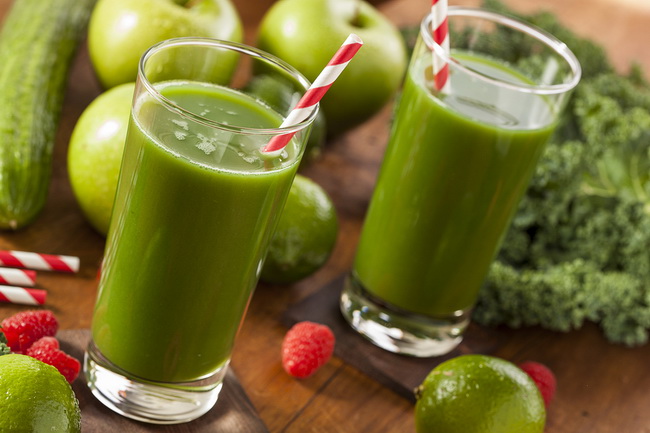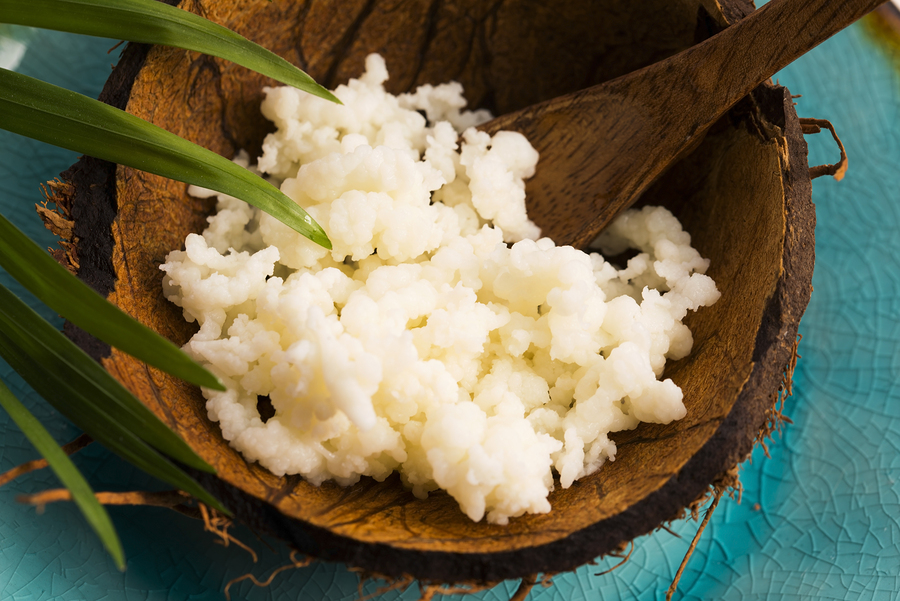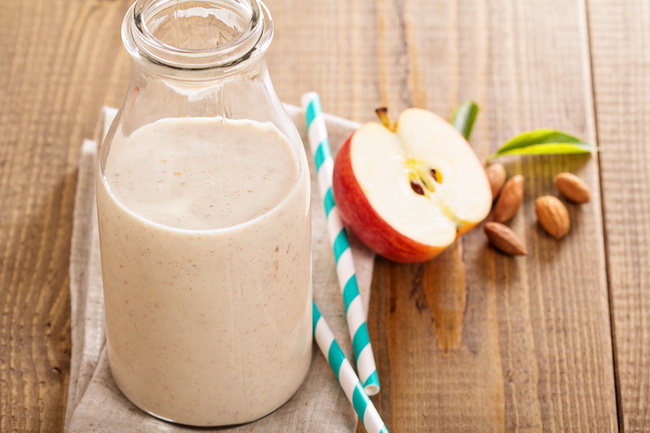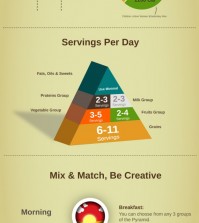- Make It Yourself Lavender Heart-Shaped Bath Bombs!
- 20 Things You Never Knew About “Down There”
- 12 Best Foods For Those Suffering From Arthritis Pain
- 12 Personal Hygiene Mistakes Almost Everyone Makes (Mom Never Told You About #4!)
- 15 Medicinal Plants And Herbs From The Cherokee People
- 12 Mind-Blowing Benefits Of Drinking Coconut Water During Pregnancy
- 12 Outstanding Winter Foods That Won’t Fatten You Up Like A Christmas Turkey
12 Natural Ways To Stop Constipation In Infants (#5 Is Super Easy!)

Photo credit: bigstock.com
Constipation is a pain in the … abdomen for anyone who has had it. Imagine now, if you will, an infant with constipation. This is not only a difficult problem to treat, but it is heartbreaking for parents. You can feel pretty helpless to do very much in the way of helping your child, but the truth is, there are plenty of things you can do!
When an infant suffers from constipation, it is generally due to the introduction of solid foods, the formula you are using, dehydration, or a lack of activity.
On rare occasions, constipation is due to a medical condition, such as hypothyroidism or botulism, sometimes even food allergies, but this is unusual.
If your baby has frequent problems with constipation, speak with your pediatrician. If your baby has only occasional or mild constipation, there are some terrific, completely natural ways that you can help your baby get relief.
Keep reading and discover 12 of the best ways to keep your baby from being, well, full of it!
1. Karo Syrup
Although no one likes to think of giving their baby sugary sweet corn syrup, this concentrated solution of sugars that comes from corn starch is an age-old remedy that works remarkably well. For infants less than six months of age, use Karo Lite syrup. Add one teaspoon of this corn syrup to four ounces of cooled, boiled water. Mix well and offer one ounce of this solution to your baby from a bottle. Do this just before you feed your baby his regular formula twice each day. Repeat until his stools are soft, and then stop giving your baby the corn syrup.
Continue to Page 2

Photo credit: bigstock.com
2. Apple Juice
What kid doesn’t love apple juice? Apple juice has a mild laxative effect that can encourage regular bowel movements. Avoid applesauce, however, as this has high levels of pectin that can lead to constipation. You can give between two to four ounces of apple juice once per day to toddlers and four to six ounces for slightly older children. Make your own fresh apple juice at home for best results.
3. Light Exercise
For constipation in very young children, sometimes all that is needed is a bit of exercise. Light exercises can help to improve the overall digestion and help make bowel movements more regular. Babies that get regular exercise have less gas, digestive pin, and constipation. If your baby is already crawling, use toys or encouragement to get them to take a few laps around the living room. If not, put your baby on their back, and then move their legs as if they were riding a bicycle. If your baby is just learning to walk, hold their hand(s) and help them to walk around the house or yard a few times after eating.
4. Change Formula
Some types of baby formula can be more constipating than others. Read the label on your preferred brand of formula. Formulas that are higher in casein or that have been thickened using rice cereal often cause more constipation problems. Contrary to popular belief, formulas with iron do not cause constipation. If your baby has an ongoing problem with constipation, consider changing your formula.
5. Tummy Massage
A little massage from mommy is a good way to help relieve constipation. Massage in the stomach and lower abdomen area stimulates bowel movements. Light massage can even help to relive colic and gas pain in infants. An added bonus to massage is that it helps your baby sleep better. Lie your baby down on his back, then rub a bit of warmed (not hot) olive oil or coconut oil on your baby’s abdomen and stomach area. Start about two fingers width away from the belly button and massage in a clockwise direction for three to five minutes. Do this after every meal until your baby has a bowel movement.
Continue to Page 3
6. Offer High Fiber Foods
Fiber helps to relieve constipation and encourage regular bowel movements by drawing water to them. If your baby has started eating solid food, offer them a few high fiber foods such as skinless apples, broccoli, peaches, pears, raw carrots, sweet potatoes, beans, apricots and peas. You can boil these foods or puree them a bit to make them easy to eat. You can also start offering your baby small amounts of cooked whole grains such as quinoa, oats, and barley.
7. Warm Bath
When your baby is constipated, a warm bath can help to relax your baby, bring relief from gas pains, and help to move things along. You can even give your baby a little tummy massage after their bath to encourage bowel movements and help them to sleep better.
8. Brown Sugar
Brown sugar also works well to help soften the stools so your baby can relieve themselves quickly and regularly. Boil two or three tablespoons of water, then dissolve half a teaspoon of brown sugar in the water. Allow the water to cool completely, and then give this solution to your baby before each meal to encourage healthy bowel movements.
Continue to Page 4

Photo credit: bigstock.com
9. Probiotics
One study, published in the JAMA Pediatrics Journal in 2014, found that infants, who consumed lactobacillus during the first three months of life, had reduced episodes of gastrointestinal disorders such as reflux, colic, and constipation. Probiotics are loaded with live bacteria, similar to the ones already present in our digestive systems. You can give your baby probiotics by feeding them a bit of plain yogurt that contains live cultures, or you can speak to your pediatrician about a probiotic supplement that would be beneficial for your little one.
10. Prunes
You probably already know that prunes, which are dried plums, are some of the best remedies for constipation for adults but most people do not know that prunes also work for infants and children. For infants up to six months, give one to two tablespoons of prune juice in four ounces of water, formula, or breast milk. Give this to your baby once or twice a day. Over six months of age, you can simply add some diluted prune juice to your baby’s formula. If you have started your baby on solid food, you can offer them some pureed prunes. Prunes can irritate some infants, so you might want to speak to your pediatrician first.
11. Fennel Seeds
Fennel seeds encourage smooth muscle movements in the digestive tract, which can ease overall digestion as well as encourage regular bowel movements. Fennel seeds also prevent gas. To use fennel seeds, boil one teaspoon of crushed fennel seeds in two cups of water. Allow this mix to simmer for 10 minutes, then strain and allow to cool completely. Give one to two teaspoon of fennel water to your baby three times each day. If you are breastfeeding, drink fennel tea two or three times each day.
12. Increase Fluids
For regular bowel movements and softer stools, proper hydration is essential. For small babies, water and milk are sufficient enough to keep them hydrated, prevent gas pains and constipation. Give your baby water at regular intervals. To improve digestion, warm the water slightly. Be sure that you offer your baby plenty to drink throughout the day. If you are unsure exactly how much your baby should be drinking, speak with your pediatrician.
READ ALSO: Top 5 Foods That Can Cause Constipation
Extra Tips:
- Breastfeeding mothers should limit the amount of dairy products in their diet
- Do not give your baby over the counter medicine for constipation unless your doctor has given you the OK
- Avoid giving your baby foods that tend to constipate the body including bananas, cooked carrots, and rice
- Avoid formulas thickened with rice cereal
- Do not treat infant constipation with several of the above treatments at the same time. Choose only one treatment at a time
- For babies under nine months, avoid citrus fruits as the acids in these fruits are hard on young tummies
References:



































Baka Ali
Feb 21, 2017 at 1:13 am
Very helpful article for preventing infant constipation. I think Karo syrup is also helpful for this reason.
http://constipation.how/karo-syrup-for-infant-constipation/ https://uploads.disquscdn.com/images/601e28de61d331bcfc8de9e200e6c514b8d22149613386d30d9ec227389e62e5.jpg